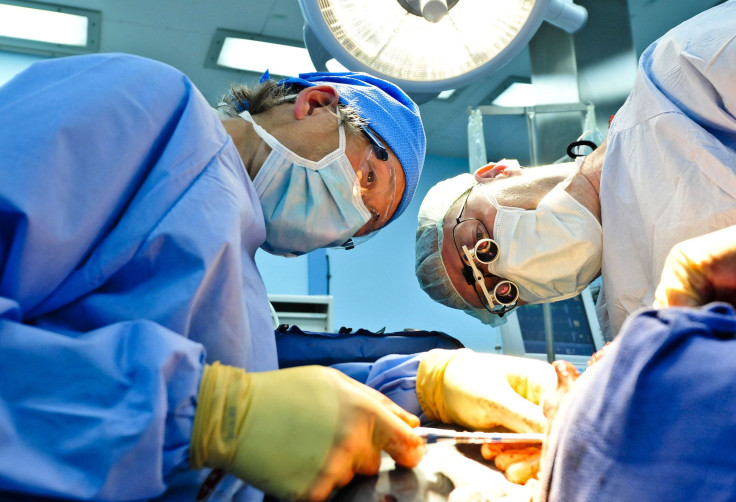Woman Receives First Successful Heart Transplant Using Experimental Artificial Heart

A 44-year-old woman received the first successful heart transplant thanks to an investigative version of a Total Artificial Heart.
The woman was the first person in California to receive the experimental, smaller, Total Artificial Heart, and the first person in the world with the device to be successfully bridged to a transplant — meaning she went from needing a transplant to actually receiving one.
The 50cc SynCardia temporary total artificial heart is the smaller version of the 70cc SynCardia heart, which was approved for use in people awaiting a transplant by the FDA in 2004, and has been used by over 1,440 patients worldwide. The 50cc is designed for use in smaller patients — this includes most women, adolescents, and some men. The device is used for patients with biventrical heart failure, meaning both sides of the heart are failing to pump blood enough to sustain the body.
Nemah Kahala, a petite wife and mother of five, was suffering from restrictive heart muscle disease and was transferred to UCLA in critical condition this March. Her condition was so advanced that even repair surgery and mechanical assist devices could not help. She was placed on a life support system, and the FDA approved a one-time emergency use of the experimental device.
“Mrs. Kahala’s condition was deteriorating so rapidly that she would have not survived while waiting for a transplant,” said her surgeon, Dr. Abbas Ardehali, a professor of cardiothoracic surgery and director of the UCLA Heart and Lung Transplant Program said in a press release.
The heart device provided an immediate flow of blood to help organs recover, and make patients better candidates for transplants. Two weeks after the transplant, Kahala was strong enough to be placed on the transplant waiting list — a week later she was matched with a donor.
“In addition to the high-tech medicine that kept her alive, Mrs. Kahala and her family have exemplified how a solid support system that includes loved ones and a compassionate medical team practicing what we at UCLA have termed ‘Relational Medicine’ plays an important role in surviving a medical crisis,” said Dr. Mario Deng, professor of medicine and medical director of the Advanced Heart Failure, Mechanical Support and Heart Transplant program at UCLA said in a press release.
The Heart Transplant Program has implemented eight of the 70cc SynCardia Total Artificial Hearts since 2012, but the FDA cautions that the 50cc is still an investigational device.



























